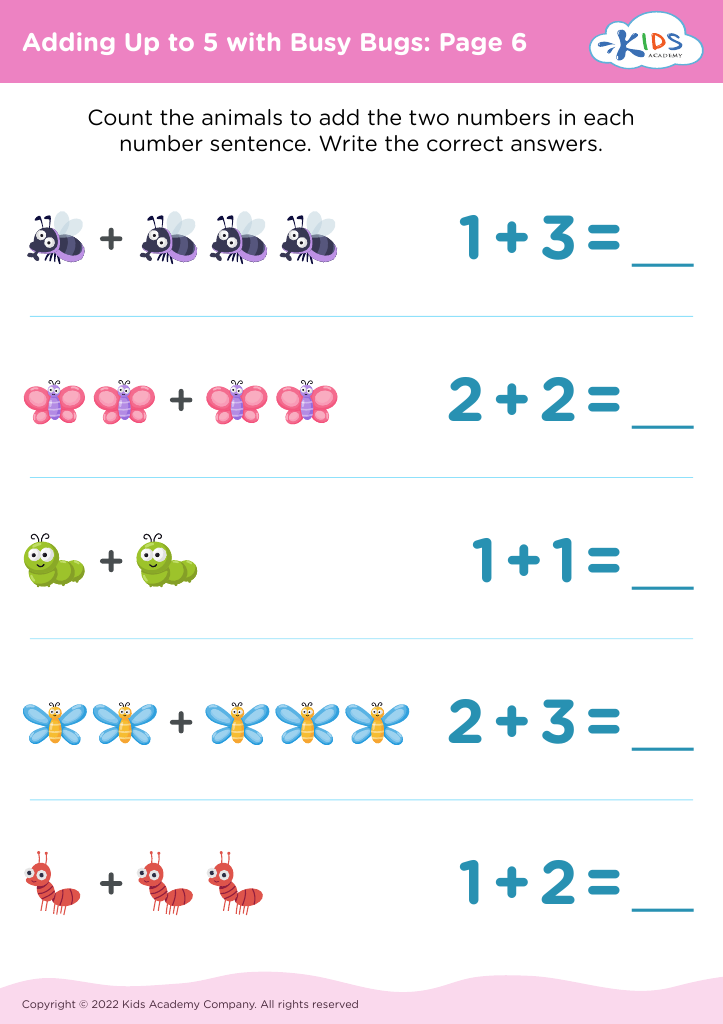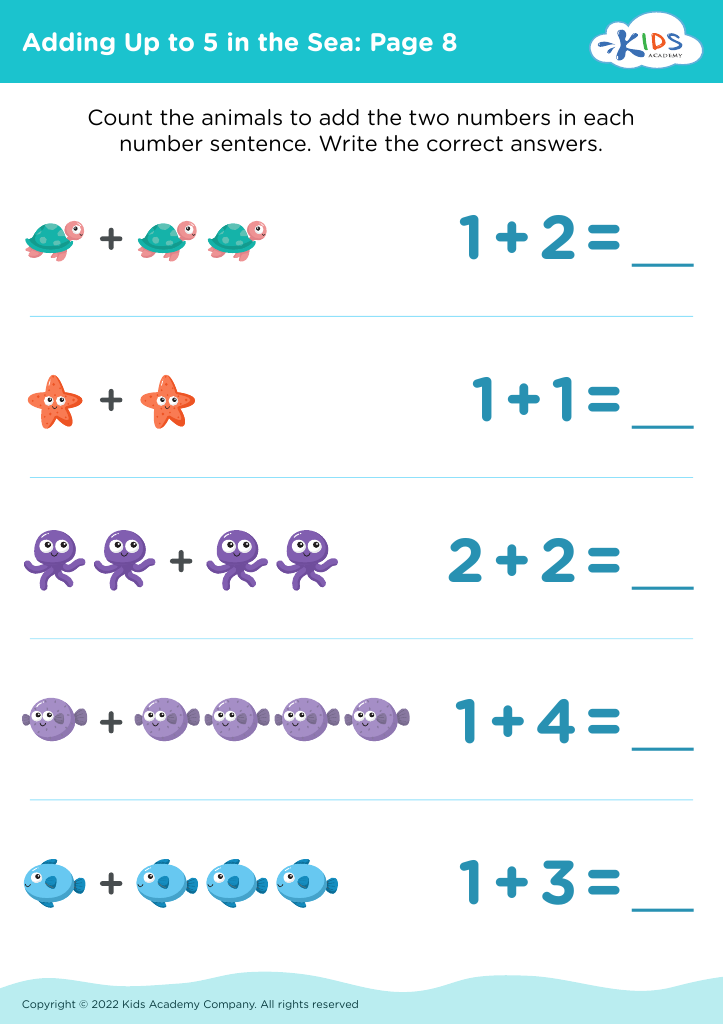Basic arithmetic comprehension Worksheets for Ages 4-8
6 filtered results
-
From - To
Discover our expertly designed Basic Arithmetic Comprehension Worksheets for Ages 4-8! Perfect for young learners, these fun and engaging printable worksheets develop essential math skills, including addition, subtraction, and number recognition. Our activities are crafted to enhance critical thinking and problem-solving abilities while making learning enjoyable. Ideal for classroom or home use, these resources are aligned with educational standards to support your child's early math journey. From colorful visuals to interactive tasks, explore a variety of worksheets tailored to give your child a confident start in arithmetic. Start building a strong math foundation today!
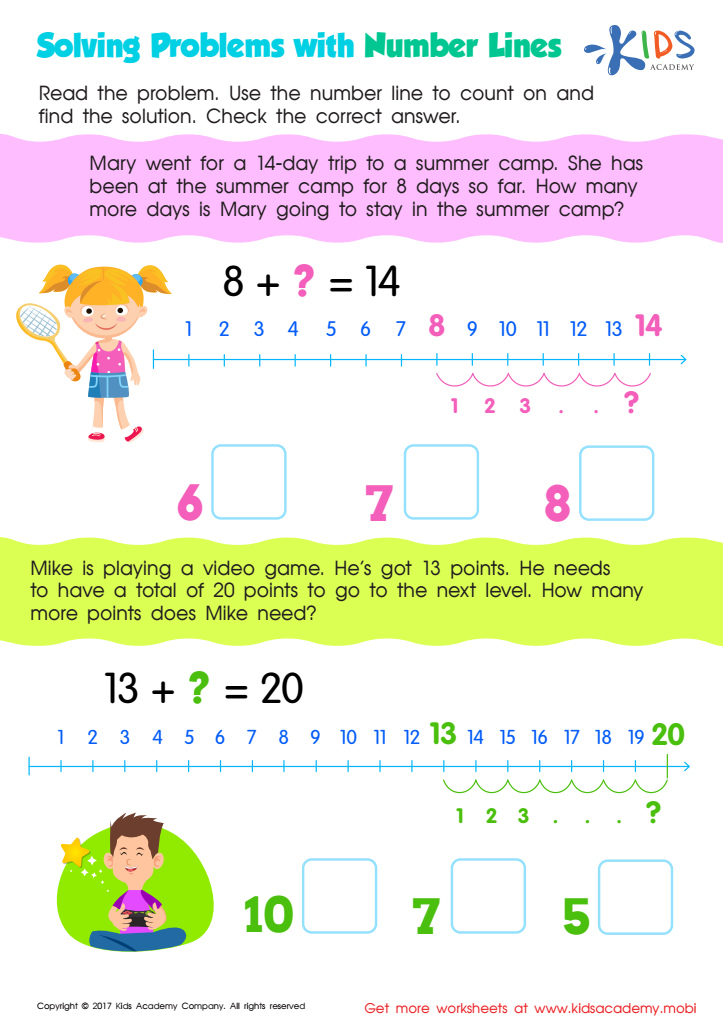

Solving Problems: Number Lines Worksheet
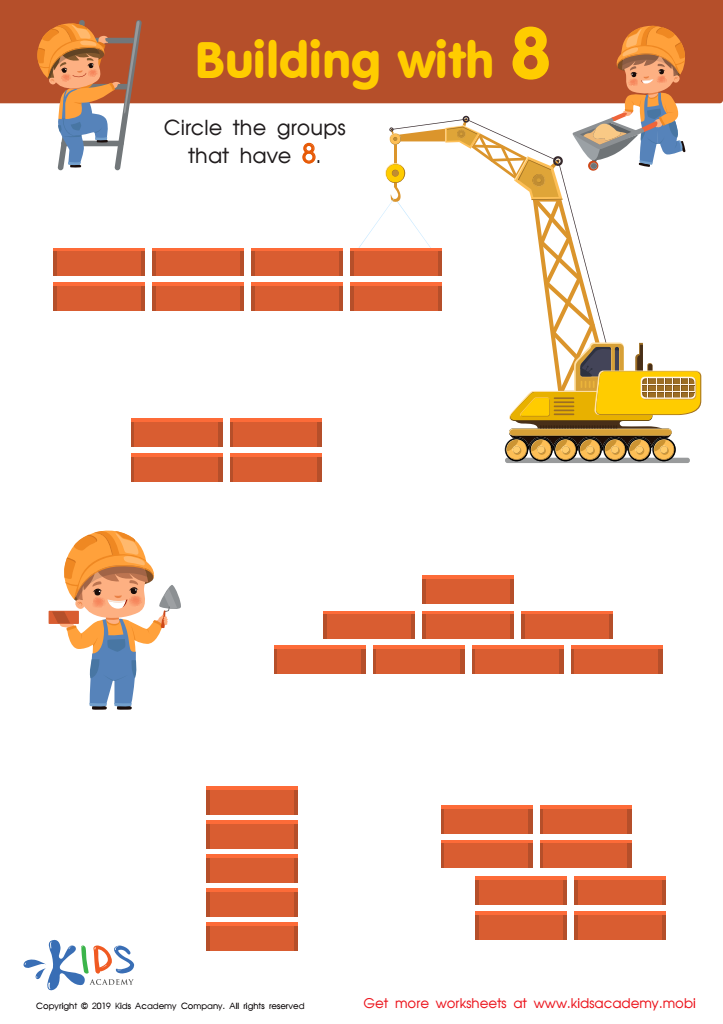

Building with 8 Worksheet
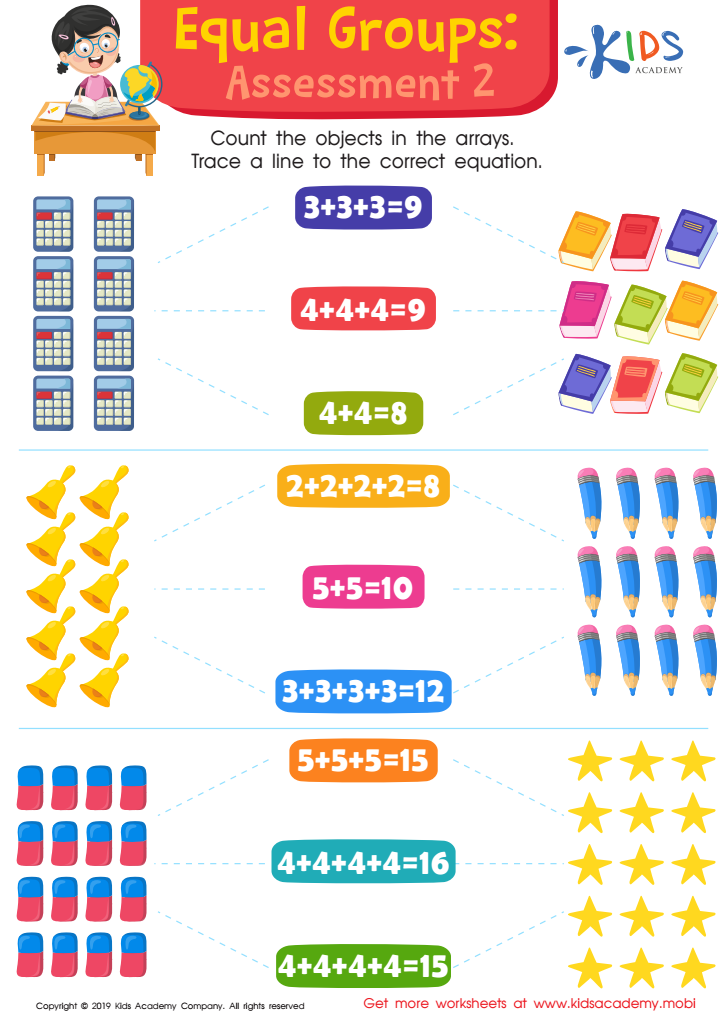

Equal Groups: Assessment 2 Worksheet
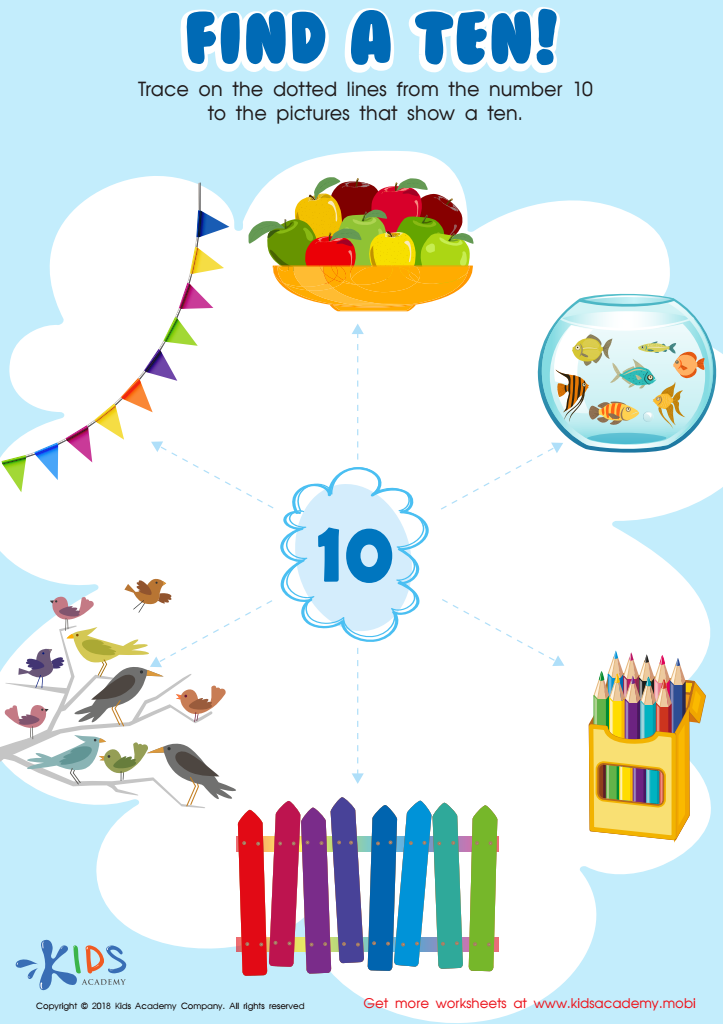

Kindergarten Math Worksheet: Find a Ten
Basic arithmetic comprehension for children aged 4-8 is crucial because it lays the foundation for future academic success and lifelong skills. At this early age, understanding basic arithmetic such as addition, subtraction, and identifying numbers helps build crucial brain connections related to problem-solving and logical thinking. These skills are not just useful for mathematics but are transferable to science, literacy, and everyday tasks.
A solid grasp of basic arithmetic enhances a child’s ability to perform well in school, leading to increased confidence and a positive attitude towards learning. Numeracy skills developed during these formative years are predictive of later academic achievement. Without a firm understanding of basic arithmetic, children are likely to struggle with more complex mathematical concepts as they advance in their studies.
Moreover, arithmetic is more than just numbers and calculations; it helps children understand patterns, measurements, and spatial relationships, thus improving their cognitive abilities. Engaging young children in arithmetic also encourages practical daily applications, such as counting objects, measuring ingredients while cooking, or determining the time spent on activities.
For parents and teachers, fostering these early math skills involves creating a positive, resource-rich environment that emphasizes fun and interactive learning. This not only propels children academically but also equips them with essential life skills that build their confidence and independence.

 Assign to My Students
Assign to My Students
